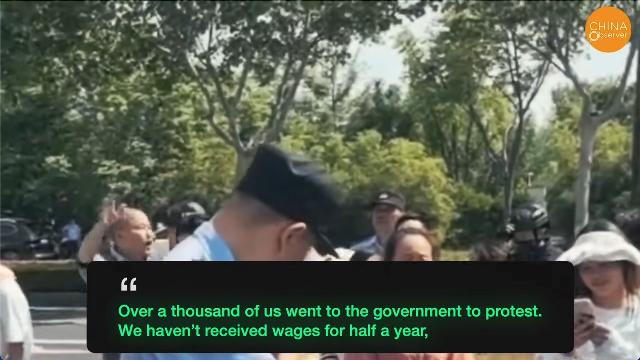China is willing to talk tariffs
Around 2,600 years ago, Aesop’s fables came into being. One of the most resonant was about the girl carrying a bucket of milk and dreaming of all the wonderful things she’d do with the proceeds, including buying eggs that would hatch into profitable chickens. She was so focused on her dream, though, that she spilled the milk. The moral, familiar to Westerners for generations: “Don’t count your chickens before they hatch.”
I tell this tale as a reminder to myself not to get too optimistic that the Chinese, after reacting with aggressive hostility to Trump’s tariffs, have finally agreed to talk.
My take from the beginning was that Donald Trump knew something that know-nothings in the media didn’t when it came to putting pressure on China. All the Democrats and many NeverTrump Republicans (and even a few pro-Trump Republicans) were certain that American consumers would collapse under the weight of China’s retaliatory tariffs, and that Europe would suddenly become a Chinese marketplace.

Protests in China. YouTube screen grab.
However, my take was different. Yes, China is the world’s most populous country, but it’s also a demographic disaster thanks to the effects of the now-repealed one-child policy. It’s aging even faster than America is. This means that, rather than being a pyramid with a huge cohort of young people at the bottom supporting a smaller cohort of aged people at the top, China’s pyramid is upside down. The same is true for Europe and Japan (and, again, to a lesser extent, America), but China has less economic resilience.
China’s lack of resilience is because its economy is very much a bubble. It’s been able to undercut American industry partly because, as a developing country, it had cheaper labor costs, helpfully augmented by slave labor. However, it could also undercut American manufacturers because the government subsidizes Chinese manufacturing. That works in the short term, but eventually, it becomes robbing Peter to pay Paul, with the government taking money from one side of the manufacturing sector to prop up another side.
China has also been pouring money into its military, which has a huge corruption problem. It’s very big, which is itself a danger, but often that shiny new look masks serious problems with corrupted weapons systems (although the linked article is correct that complacency on our part in the face of this information would be disastrous). Money poured into the military is smart spending if you want to go to war, but it also robs the industrial sector.
Another big outlay draining the Chinese treasury is the Belt and Road Initiative, which sees China going to poor countries in Europe, Africa, Latin America, and Asia, and offering to build infrastructure for them—infrastructure in which China maintains an ownership interest. This means that it owns ports and airports around the world. But all is not rosy.
The countries signing on think they’re getting employment and infrastructure, but they discover that China only uses Chinese labor, which creates its own problem. Seven decades of communist rule mean that the Chinese-built infrastructure projects are as shoddy as the gimcracks and geegaws that fill store shelves in America. Italy was so disappointed with the supposed benefits it was to have received from its Belt and Road project that it refused to renew its agreement.
China also has an ongoing crisis in its real estate sector, which is a huge blight on the economy, for it has created enormous debt.
What’s been propping up China’s economy is America, for we are by far its largest trade partner. It needs our cash flow more than we need its cheap products—and ordinary Americans know this, which is why they, unlike the Democrat establishment, were willing to give Trump time to develop the tariff initiative. They also knew that Trump, with executive orders aimed at decreasing regulations and lowering oil prices, would finally free them from the deadly grip of Biden’s inflation, offsetting rising costs on Chinese goods.
And sure enough, in the wake of Trump’s China tariff policy going into effect, while the media screamed and the stock market had a short fainting spell, the American people slogged on... Well, they didn’t slog; they actually did fine.
Things weren’t so fine in China, though, where factories closed and workers protested:
And that’s why the news today is that Trump officials will be having direct talks about trade with China:
Treasury Secretary Scott Bessent and U.S. Trade Representative Jamieson Greer are poised to meet with Chinese officials in Switzerland over the weekend to discuss trade and economic matters, according to their respective agencies. China reportedly confirmed there will be talks.
Talks don’t mean deals, and there are no more savvy negotiators than the Chinese. That’s why I warned at the beginning of this post about counting chickens before they hatch.
However, this was always going to end at the negotiating table. We need to hope now that Bessent, whom I’m currently liking very much, has the wisdom to get a good deal while enabling the Chinese to keep their dignity.





